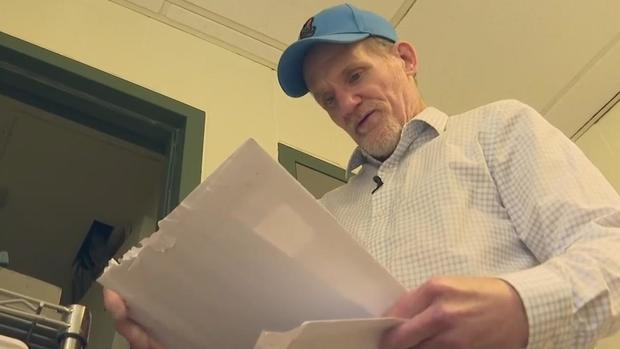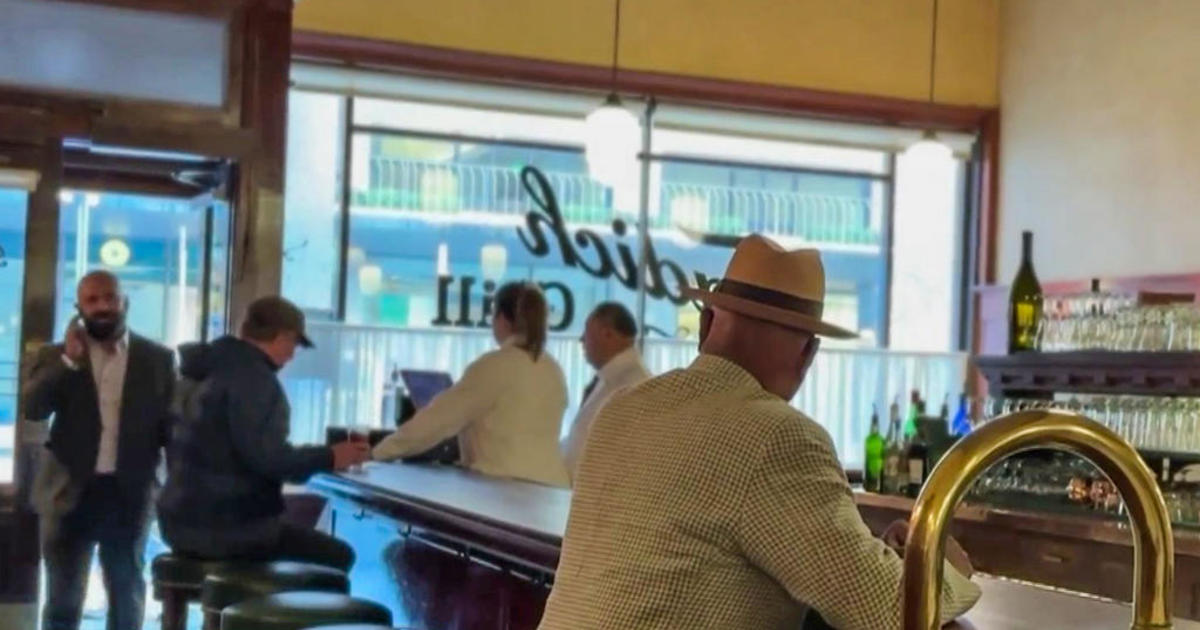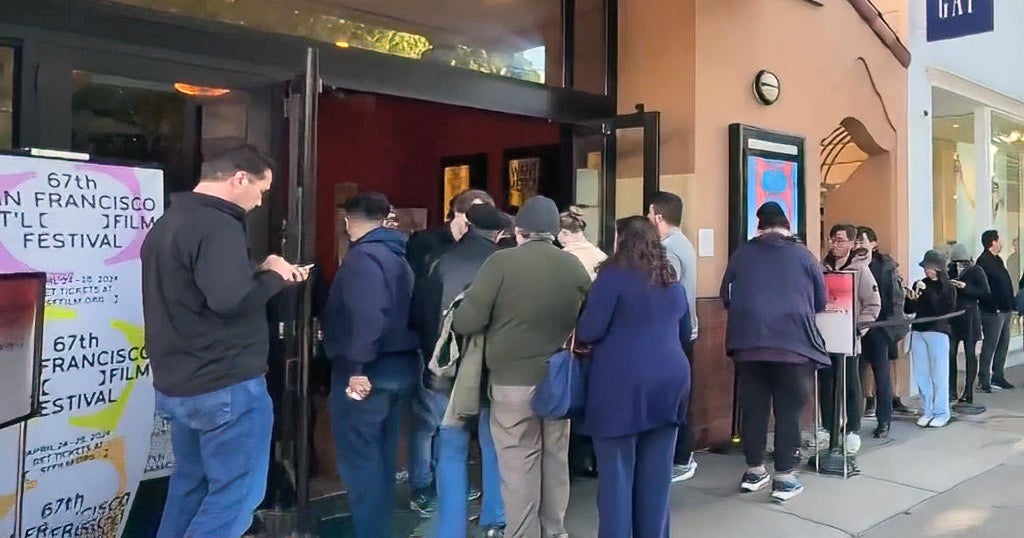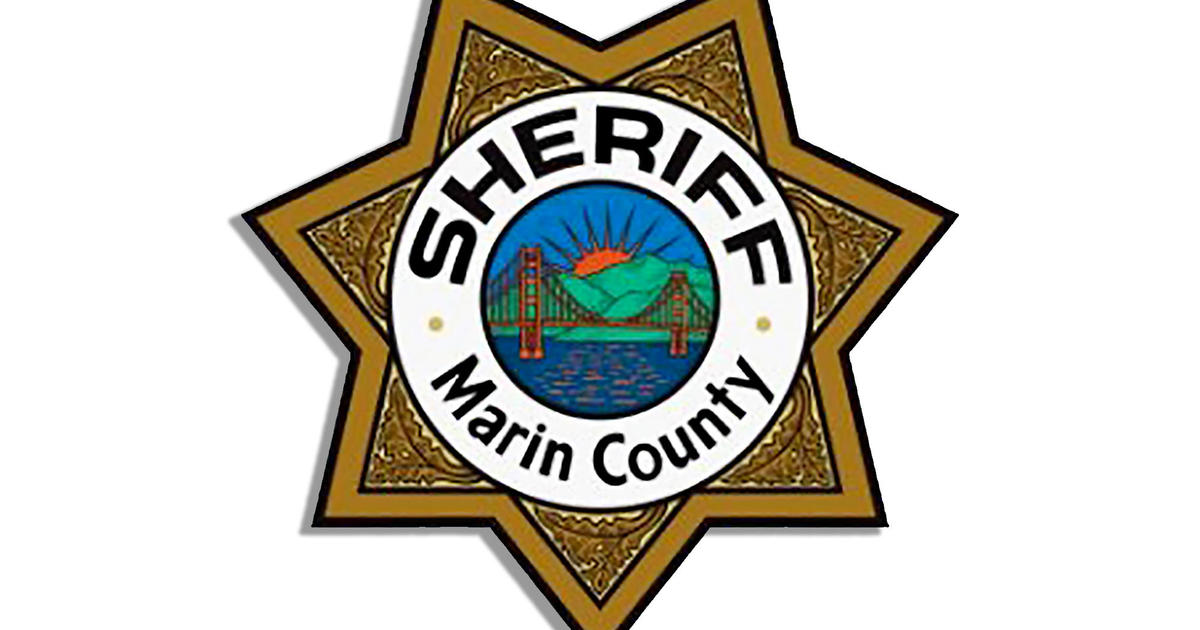Bay Area veteran talks about redemption decades after his painful involuntary exit from Army
The naming of the USNS Harvey Milk is just one sign of a very different U.S. military than what many LGBTQ veterans experienced, including one Bay Area army veteran, who reflected on his painful exit from service and how things have changed.
Mementos from a major part of Michael Higgins' life sit inside a box atop a shelf in his home. Photos bring back memories from high school, when he attended a military academy, and then memories from his time serving his country.
The U.S. Army veteran was stationed in Berlin in 1988, and he was proud to be there.
"It was me. I loved it," he said.
But that chapter of his life came to an abrupt halt after about a year and a half in the service. He received a general discharge under honorable conditions and was sent home. The reason, according to his DD 214 paperwork: "admission of homosexuality/bisexuality."
"I was kicked out for being gay," he said. At the time, military policy explicitly banned gay people from serving the country.
"I was actually read my Miranda rights in Berlin, Germany, for being gay. Think about that," he said. "I was getting death threats from guys that were willing to save my life the day before they found out I was getting kicked out for being gay."
Higgins wasn't the first, and certainly wasn't the last servicemember to have this experience.
Three years later, President Bill Clinton announced his "Don't Ask, Don't Tell" policy, hoping to find compromise in the fight over the military's ban on gays and lesbians from joining their ranks.
"It is not a perfect solution," Clinton said in 1993. "It is not identical with some of my own goals. And it certainly will not please everyone; perhaps not anyone."
While some saw it as a step forward, many were unhappy -- especially people in the community it effected the most.
"To be frank, it was lame. It really was," Higgins said. "Everyone in the community thought it was."
The policy was met with protests and legal challenges from the get-go.
"The whole point of 'Don't Ask, Don't Tell,' was, 'We're not going to ask you, but if you volunteer that information or if you're caught, then you're in trouble.' It created this whole culture of stigma and taboo and fear," said James Zarsadiaz, an associate professor of History at the University of San Francisco. "That's why it was very controversial then and now."
But it remained policy for 17 years, up until 2010, when it was repealed under President Obama.
"Our people sacrifice a lot for their country, including their lives. None of them should have to sacrifice their integrity as well," Obama said at the time.
"When the repeal occurred, there was this big sigh of relief after generations of trying to move the needle - especially in the military, an institution that is arguably much more conservative than others," Zarsadiaz said. "This was decades of activism from the community and those who were allies. So when this was repealed, a lot of people saw wheels in motion towards for example, marriage equality and other issues that were so important to the LGBTQIA+ community."
Then in 2021, another step forward for the LGBTQIA+ community, when President Biden overturned the Trump Administration's ban on transgender people from serving in the military.
"What I'm doing is enabling all qualified Americans to serve their country in uniform," Biden said in 2021.
"Now you have the Commander in Chief recognizing people who identify as transgender," Zarsadiaz said.
A lot has changed since Higgins' duty came to a sudden and unceremonious end.
"It's an exponential difference, is what it is; in a positive direction," he said. "I mean, this is a military that has gone from it's illegal to be gay, period, to now, we're naming one of our naval ships after Harvey Milk."
The change of tides has allowed him to rewrite a part of his personal history, too. In 2022, Higgins received new discharge papers, inked with the word 'honorable.'
"I was happy," he said. "It's the way it should be. I did serve this country honorably. I didn't do anything wrong."
Looking at the bigger picture, he says more can still be done.
"There's always room for improvement, right? Again, that'll be through education. We have to educate," he said. "We should all be treated with respect and dignity. That's really what it's about."
But he's grateful to see how much has changed since his days as a young man in uniform.




